
Five Things Stephanie Tyree Learned About Community Development and Leading a WV Non-Profit
Stephanie Tyree shares 5 powerful lessons from 13 years of leading WV’s community development movement and building lasting change across small towns.
The West Virginia Community Development Hub (The Hub) is proud to announce that Executive Director Stephanie Tyree is a steering committee member for the newly launched Green Bank for Appalachia, Energy Communities, and Underserved Rural America (Green Bank for Rural America). The Green Bank for Rural America, led by Appalachian Community Capital (ACC), is intended to be a hub for community lenders, local leaders and workforce development programs to gain access to investment and technical assistance for the development of green energy projects across the country.
Green Bank for Rural America is being awarded $500 million through the Environmental Protection Agency’s (EPA) Clean Communities Investment Accelerator (CCIA). Focusing on low-income and distressed communities, the award will finance clean energy projects and help build capacity of community lenders serving those communities. Green Bank for Rural America is an important moment in the promotion and investment in clean energy for low-income, rural, disadvantaged, and diverse communities that have been impacted by the decline of fossil fuels.
“The Green Bank for Rural America’s commitment to comprehensive community development resources is a testament to the depth of ACC’s understanding of what is necessary to ensure this type of investment reaches the highest-need, highest-impact areas of the country,” says Stephanie Tyree, Executive Director of The Hub. “The WV Community Development Hub is proud to be a Steering Committee partner in this project and excited to see the many years of beneficial impact that will be created through the work of the Green Bank for Rural America.”
The Biden-Harris Administration’s Inflation Reduction Act established the Greenhouse Gas Reduction Fund—a groundbreaking $27 billion initiative aimed at addressing the climate crisis, promoting economic competitiveness, and fostering energy independence. The Fund consists of three competitive programs: a $14 billion National Clean Investment Fund (NCIF), a $6 billion CCIA program, and a $7 billion Solar for All program.
CCIA will finance clean technology deployment in low-income and disadvantaged communities while simultaneously building the capacity of community lenders that serve those communities. This program marks a pivotal moment in the effort to promote clean energy investments in low-income, rural, and diverse communities impacted by declines in the fossil fuel industry.
“President Biden and Vice President Harris have put communities at the center of their Investing in America agenda. Today, we’re putting an unprecedented $20 billion to work in communities that for too long have been shut out of resources to lower costs and benefit from clean technology solutions,” said EPA Administrator Michael S. Regan. “The selectees announced today will deliver transformational investments for American communities, businesses, and families and unleash tens of thousands of clean technology projects like putting solar on small businesses, electrifying affordable housing, providing EV loans for young families, and countless others. That translates to good-paying jobs, energy bill savings, and cleaner air, all while delivering on President Biden’s historic agenda to combat climate change.”
Gayle Manchin, Federal Co-Chair of the Appalachian Regional Commission, noted “When coal-impacted communities succeed, the rest of the country is made stronger. That’s why investments such as the Green Bank for Rural America are critical in leveling the economic playing field.”
“The Green Bank for Rural America is a place-based effort that will be a hub for investment and technical assistance to community lenders, local leaders, and workforce development partners across the United States,” said Donna Gambrell, ACC’s President and CEO. “We are grateful to EPA for this recognition. We want to ensure that no communities are left behind and that low-income and disadvantaged communities in Appalachia and other parts of this country benefit from efforts that will result in healthy communities for generations to come.”
ACC will utilize the $500 million award to catalyze green energy investments in low-income rural communities. The funds will be used to leverage private capital to finance $2.25 billion in 2,750 clean energy projects, create 18,000 quality jobs in rural communities, reduce energy generation from carbon-based sources by 1.4M MWh annually, and reduce carbon emissions by 12M tons annually.
The establishment of the Green Bank for Rural America aims to accelerate economic restructuring and diversification in communities impacted by declines in the fossil fuel industry. ACC and its partners have structured a robust national program that prioritizes 582 counties in Appalachia, energy and underserved rural, BIPOC, and Native communities—30% of all US persistent poverty counties. Financing and technical assistance activities will be available in all eligible underserved rural communities nationally.
The Steering Committee for the Green Bank for Rural America is comprised of:
About Appalachian Community Capital:
Appalachian Community Capital is a CDFI lending intermediary created to raise capital for its 35-member CDFIs and other mission-based lenders. The members, in turn, use ACC’s capital to fund small businesses in underserved areas in Appalachia, including businesses owned by women and persons of color. The members, many of which have been in operation for more than 20 years, and their affiliates manage over $2 billion in assets supporting economic development in Appalachia.
About West Virginia Community Development Hub:
The West Virginia Community Development Hub supports West Virginians with the tools and training they need to lead and spark positive change in their hometowns and across our state.
In 2009, The Hub was founded by a small group of passionate, committed community development leaders who saw an opportunity to establish a new, innovative approach to catalyze community growth and transformational change in rural areas of West Virginia. Their goal was to create an organization that would serve as a technical assistance provider, a coach for communities, and a team to connect the network of resources available across the state to serve West Virginia communities.
About EPA’s Clean Communities Investment Accelerator Program:
The $6 billion Clean Communities Investment Accelerator is providing grants to support 5 hub nonprofit organizations, enabling them to provide funding and technical assistance to public, quasi-public, not-for-profit, and non-profit community lenders working in low-income and disadvantaged communities—supporting the goal that every community in the country has access to the capital they need to deploy clean technology projects. These hub nonprofits will enable hundreds of community lenders—such as community development financial institutions (including Native CDFIs), credit unions, green banks, housing finance agencies, and minority depository institutions—to finance clean technology projects in low-income and disadvantaged communities while also mobilizing private capital and building the enduring capacity of community lenders to finance these projects for years to come. One hundred percent of the funds from the Clean Communities Investment Accelerator will be dedicated to low-income and disadvantaged communities.
Learn more about the Green Bank for Rural America, and on Appalachian Community Capital.

Stephanie Tyree shares 5 powerful lessons from 13 years of leading WV’s community development movement and building lasting change across small towns.
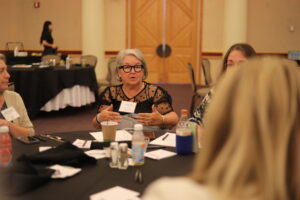
People often get involved with community development due to a desire to make their community better. This desire is rooted in bringing
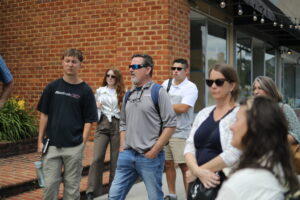
Community development is a group effort, and knowledge sharing is crucial in moving projects forward. Peter Buttler, a professor and extension specialist
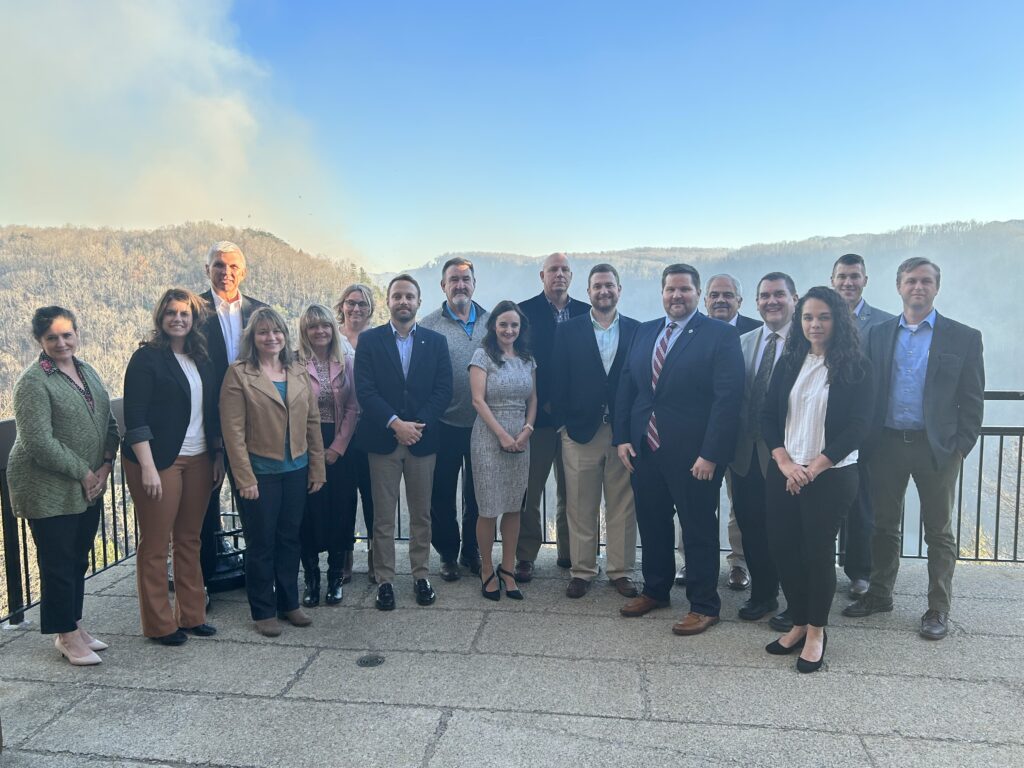
Our work is made possible thanks to incredible partnerships with other community development organizations across the state. From local economic development authorities (EDAs) to state level nonprofits working to uplift communities, all of our partners are crucial in making West Virginia the best it can possibly be by working together.
One partner that made our work truly profound this year is Coalfield Development. For years, Coalfield Development has worked to rebuild Appalachian communities by inspiring the courage to grow, activating the creativity to innovate, and cultivating communities of opportunity in central Appalachia.
We are proud to be part of Coalfield Development’s ACT Now Coalition, a broad network of organizations working hand-in-hand to uplift communities throughout Southern West Virginia. The ACT Now Coalition is infusing more than $63 million into programs to help communities using business development, building revitalization, and so much more.
The Hub is leading the Community and Business Resilience Initiative as part of the larger ACT Now Coalition to bring other partners with us to build up community and business resilience in the Coalition’s footprint.
“For decades, we’ve known the economy of southern West Virginia needs diversification. Some progress has been made on this goal, but not nearly enough,” Brandon Dennison, CEO of Coalfield Development, said about the ACT Now Coalition. “ACT Now constitutes a tangible opportunity to take a major leap forward in this generational challenge to become a vibrant, growing, diversified economy. In the wake of continued coal-job losses, nothing could be more important for our region.”
Our partnership with Coalfield Development is giving us a chance to take our work to new communities and to build upon our years of experience. Working alongside Coalfield Development in this large undertaking to bring $63.8 million to communities in Southern West Virginia is validation that the work happening to uplift West Virginia communities continues to grow.
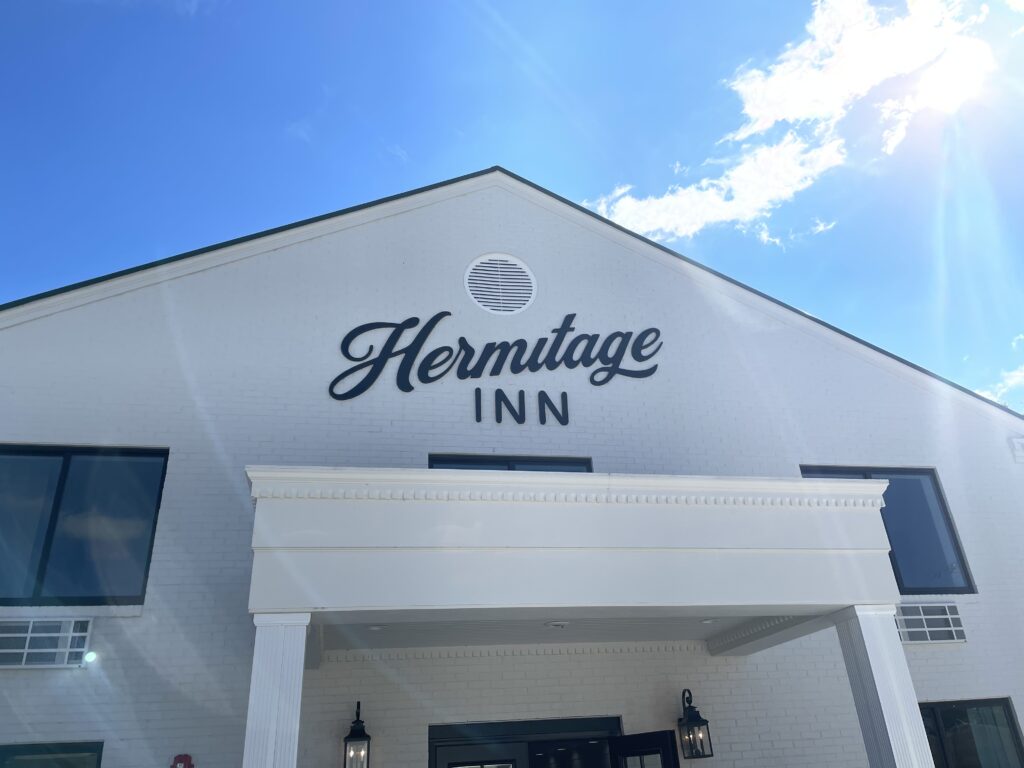
The Hub works alongside communities across West Virginia coaching community teams as they come together to make transformative changes in their towns. In 2022, one town stands out for its continued work and unwavering commitment to making its community a place where people want to live, work, play, and visit.
Petersburg, located in Grant County at the northernmost point of the Mon Forest, is filled with community members who want to make their town a destination. Not only have businesses opened, and stayed open, the town has transformed the way they present to the world through rebranding and outdoor recreational development.
As part of the HubCAP IV program, Petersburg utilized its technical assistance to push forward with projects to bring transformative change to its community. Part of the work Petersburg worked towards was creating plans to pave a hike and bike trail that runs along the Petersburg dike. The proposed trail will run approximately three miles along the Petersburg dike and will include multiple entrances for walkers and bikers. The group secured a $25,000 grant from Senator Hamilton, which was matched locally by the City of Petersburg, the County Commission, and the Board of Education, each adding an equal share to bring the total to $50,000.
This year, Petersburg witnessed a major upgrade to one of the town’s most iconic and historic structures: The Hermitage Inn. The hotel, which dates back to 1841, has been renovated and once again welcomes guests to stay the night and have a nice dinner in the restaurant.
The Hermitage Inn is the first project initiated and completed as part of the Downtown Appalachia: Revitalizing Recreational Economies (DARRE) program. Seeing the old hotel returned to its majesty has been an incredible development for Petersburg adding another jewel to the downtown area.
Seeing Hub communities come together to create transformative change thrills us. Community members are the subject matter experts on what their towns need. Our commitment to accompaniment and walking alongside communities as they do the hard work guides us in our work. Celebrating their victories with them gives us a moment to uplift those making the work happen.
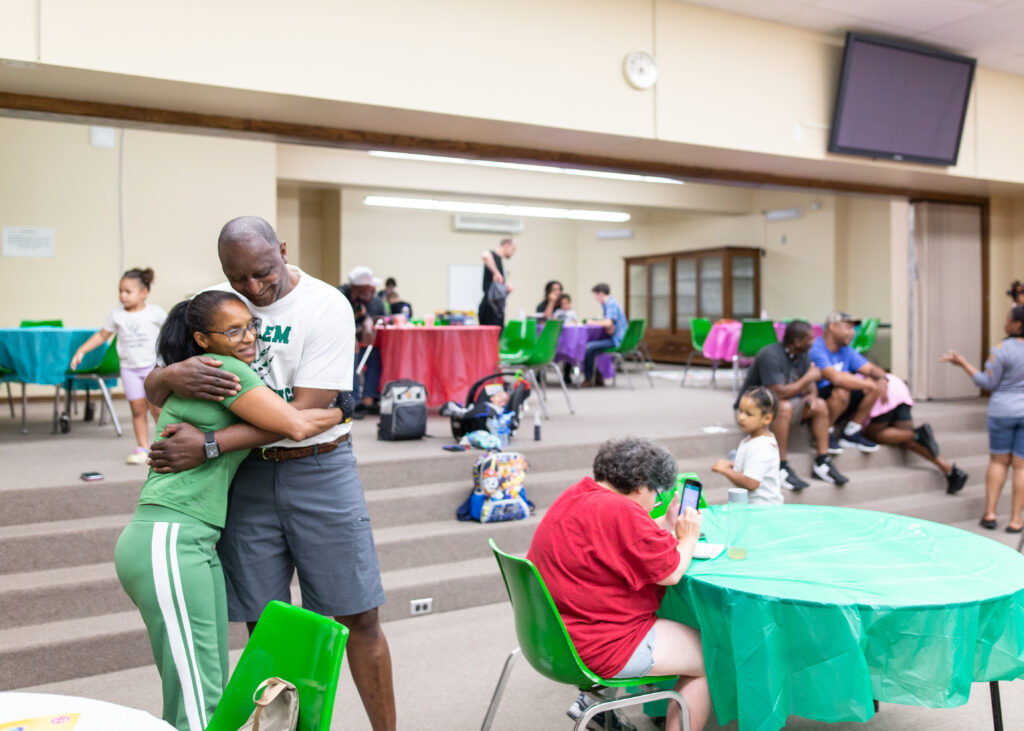
Since 2018, The Hub has been working diligently to bring Diversity, Equity, and Inclusion into our work. For years, the organization has been working internally to expand on one of our core values: “We believe diversity creates strength.”
We believe that now is a time when we must work from the ground up to commit to long-term efforts to build power through leadership development, programmatic strategies, and partnerships that commit to building power and advancing racial equity.
Looking back at our organizational history, we acknowledge that our work in rural communities with populations of less than 15,000 has not reached a diverse cross-section of people in West Virginia. Because of this, we began to ask, “Who isn’t here?” when examining our involvement in communities. The social unrest in 2020 led us to examine our role in white supremacy, ableism, classism, and gender discrimination, and the ways we have perpetuated unjust systems in our communities and across West Virginia.
Since 2020, our equity journey has included a staff racial equity learning series, making internal commitments to increasing our hiring and retainment of diverse staff including creating full-time Racial Equity Fellowship and VISTA positions, committing to increased coaching for rural communities of color across the state, and tackling the inherent challenges of advancing equity across the community development field within a highly rural, majority white state where Black and brown leadership has been historically marginalized and under-invested.
Our belief in the power of local people to see the value and the potential of their place, and of each other, is at the core of our belief in the potential we have to build power in West Virginia to advance racial equity, inclusion, and accessibility while disrupting systems that have historically excluded some communities.
We are committed to engaging in conversations to uplift communities and leaders of color to move from talk to action on why race matters in West Virginia as we work to disrupt these systems. We will support investment in Black-led organizations and rural Black leadership. And we are committed to driving public and private investments into these spaces, both organizational and geographic.
A core team led by Unleash Tygart, Inc participated in Opportunity Appalachia, receiving technical assistance to support a community development project located in an Opportunity Zone.
Core teams led by Thundercloud, Inc. and the City of Huntington participated in Opportunity Appalachia, receiving technical assistance to support community development projects located in Opportunity Zones.
A core team led by Crawford Holdings, LLC participated in Opportunity Appalachia, receiving technical assistance to support a community development project located in an Opportunity Zone.
Residents participated in round 4 of The Hub’s capstone Communities of Achievement program with a focus on building local recreational economies.
Residents participated in round 4 of The Hub’s capstone Communities of Achievement program with a focus on building local recreational economies.
Residents participated in round 4 of The Hub’s capstone Communities of Achievement program with a focus on building local recreational economies.
Residents participated in round 4 of The Hub’s capstone Communities of Achievement program with a focus on building local recreational economies.
Residents participated in round 4 of The Hub’s capstone Communities of Achievement program with a focus on building local recreational economies.
A core team led by Woodlands Development Group also participated in Opportunity Appalachia, receiving technical assistance to support a community development project located in an Opportunity Zone.
Residents participated in round 4 of The Hub’s capstone Communities of Achievement program with a focus on building local recreational economies. Read their community case study.
Residents participated in the Blueprint Communities* program to engage their neighbors and co-create strategic plans for their future.
Residents participated in the Blueprint Communities* program to engage their neighbors and co-create strategic plans for their future. Read their community case study.
Residents participated in the Blueprint Communities* program to engage their neighbors and co-create strategic plans for their future. Watch their community documentary.
Residents participated in the Blueprint Communities* program to engage their neighbors and co-create strategic plans for their future. Read their community case study.
Residents participated in the Blueprint Communities* program to engage their neighbors and co-create strategic plans for their future.
Residents participated in the Blueprint Communities* program to engage their neighbors and co-create strategic plans for their future.
Residents participated in the Cultivate WV program to kickstart community and economy building. Read their community case study.
Residents participated in the Cultivate WV program to kickstart community and economy building. Read their community case study.
It has been a year of abundant opportunities and partnerships across the state, and a year that has pushed all of us to work harder, faster, and smarter – together.
At The Hub, we say that “the work works when you put in the work.” This means that our approach to community-based development, and individual leadership development, really does transform local communities, especially when we all work together for the same goal, and stay committed to working together for the long haul.
In 2023, we continued to be amazed at the local leadership, drive and innovation we saw in communities throughout the state that are building locally-driven development from the ground up. Our network of community leaders, partners and opportunities keeps growing and shows no signs of slowing in 2024!
We extend our deepest gratitude to everyone for being part of the larger Hub community as we reflect on this year’s deep impact in West Virginia communities through our work. We are thrilled to have champions who believe in our mission that every community in West Virginia can achieve economic growth when they are supported with the tools and training they need to lead and spark positive change.
We believe strongly in the fact that putting in the work yourself to improve your neighborhood, your town, and our state is where true transformational change happens. With strategic partners and thought leaders like you in the work with us, we continue to be able to walk alongside community teams as they do the work to uplift their communities.
Thank you to all of the community teams and leaders who are brave enough to keep showing up every day, and putting in thousands of hours of volunteer time to support your communities and the entire state. Your determination in the face of difficult work and far-off successes is something to applaud yourself for – and to celebrate.
Whether you’re volunteering on the ground in your community, sharing our stories of hope with your friends and neighbors, or attending a virtual event with The Hub, your participation in our work is what keeps it going. Thank you for all your work and support this past year, and we are excited to continue in the work with you in 2024!
In Continued Accompaniment,